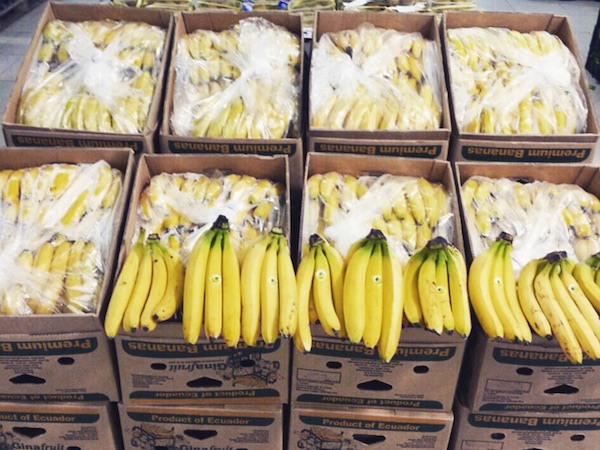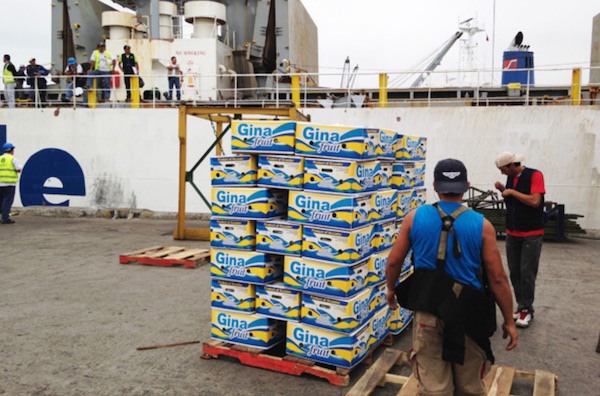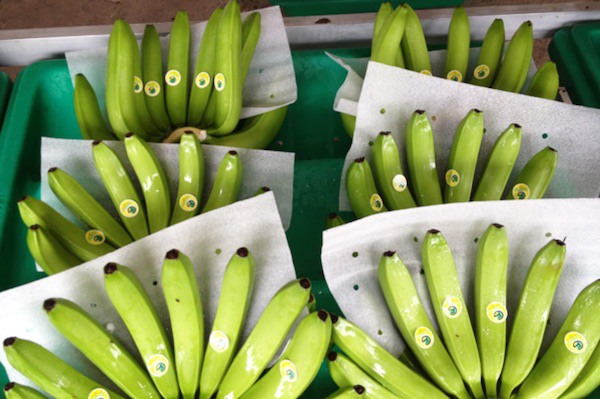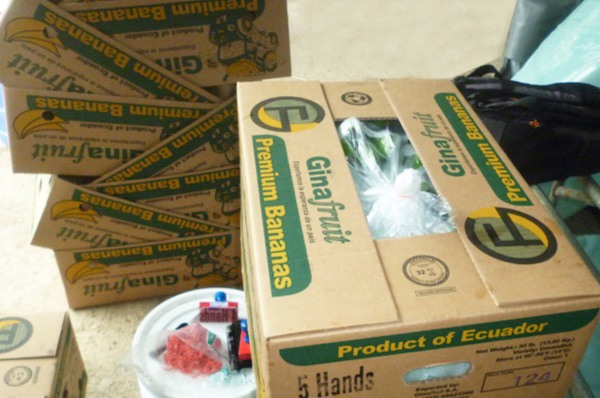Ecuador is one of the largest banana-producing countries in the world, and while the total number of COVID-19 cases in Ecuador is not very high yet, the agriculture industry has been feeling the effects of the pandemic. These issues are mostly due to labor shortages, which have been causing delays in the shipments.
Hugo Castro, CEO of GinaFruit says: “Mobility has been getting more limited, but fortunately, we’re still able to continue working. It’s difficult, but it’s going and we’re getting our orders out. The logistics have been difficult, but this isn’t because of actual infections but rather because of panic and fear among the people.”

Labor shortage causes challenges
GinaFruit, like other banana producers and agricultural companies in Ecuador is seeing a shortage of workers. Castro explains: “Labor has become a challenge for us. People are afraid to come to work because they don’t want to get infected. There aren’t as many trucks taking the product to the ports because every day there are less and less drivers available. So far, the biggest effect has been delays in shipments – here in Ecuador in getting the product to the port, and then in the destination when the shipments arrive, it takes longer to get the product unloaded. We have been working overtime, even throughout the weekends to get the cargo out and get it to the ships on time to fight against these delays.”
Castro emphasizes that while there is fear among the people and the workers for contracting the virus, the company is taking all the necessary precautions and providing protection materials to ensure the safety of it’s workers. “We have also put bonuses in place to help incentivize the workers to continue coming to work. The Ecuadorian government has also been helping to keep the agriculture sector running as smoothly as possible,” he says.

Low prices in the market
This time of year is traditionally the time during which the pricing for the bananas is the highest, but currently the prices are lower than usual. Castro explains: “For the spot market, the pricing is lower than it usually is during this time of the year. This is because of the global situation surrounding the pandemic – people are taking less risks, and importers aren’t loading any extra product beyond what they are sure will sell.
While the market prices are low right now, Castro points out that the economic damage and the social ramifications that could occur due to not harvesting the fruit would be much worse. “Bananas need to be harvested at the right time, and they can’t be kept for very long. So, we have to keep going, continue harvesting and shipping to avoid the markets shelves from going empty.”

High retail demand
Even though the market is seeing low prices, the demand for bananas is stable at the moment. “The panic buying lasted 2-3 weeks, and the demand during this time was really high. But even after the panic buying subsided, the demand remained steadily high. The wholesale demand has gone down significantly, but the increase in retail demand has so far made up for that,” says Castro.
He adds: “There’s different patterns depending on the country. Countries in Europe and North America are very retail-based so their demand is stable, but then a lot of other countries, like the ones in the Middle East are much more wholesale based and they’re struggling supplying the demand in the country because the entire wholesale market is down. China, surprisingly, came back very strong after they opened back up and are demanding a lot of bananas.”
Many currencies have dropped in value since the outbreak, and this has made the market even more complicated. “Many countries, like Russia, have seen a big devaluation of their currency. In Ecuador we have the dollar, so that means that for a lot of countries it has become more expensive to buy our product,” Castro says.

Teamwork in the supply chain
The shortages in the labor field also have indirect effects on the agriculture industry. “The correct question at this moment is who can load and who can not. We have some shortages in our packing materials too because there aren’t enough workers producing it. However, we have seen that everyone is willing to adapt during these difficult times. Importers are very understanding if their normal packaging size isn’t available right now, and overall there’s been great teamwork between everyone in the supply chain. I would say that it’s a big triumph that everything continues to move the way it is. Even though it is a struggle right now, I am very optimistic about the situation. The true heroes at this moment are all the workers out there keeping the agricultural supply chain alive,” Castro concludes.
For more information: 
Hugo Castro
GinaFruit
Tel: +593 999423369
Email: gerencia@ginafruit.com.ec
www.ginafruit.com.ec
